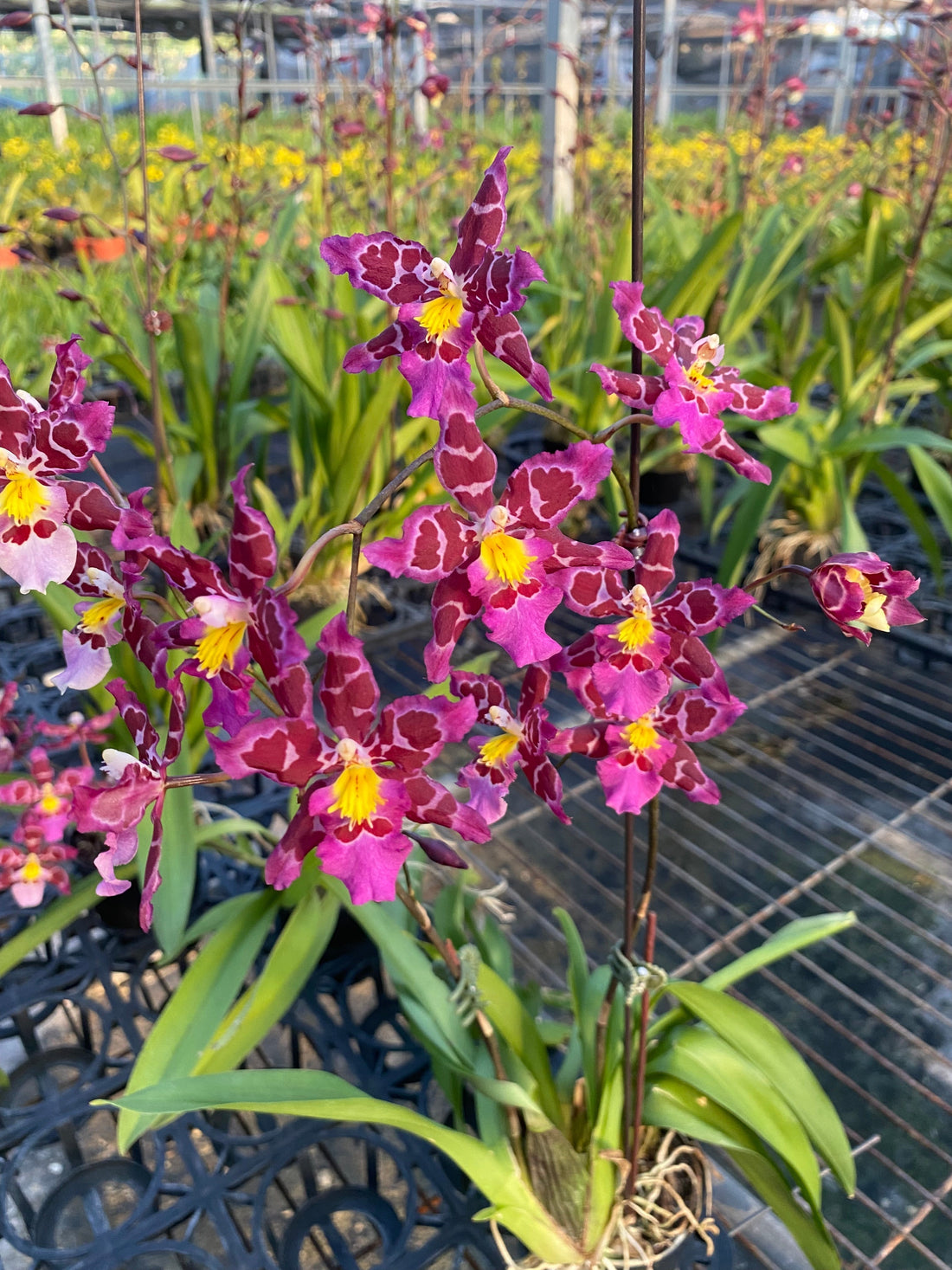
Zelenkocidium Hwuluduen Ruby Gem 'Shirley' 葫蘆墩'雪莉'文心蘭
Breeding Origin and Heat Resistance
'Shirley' is a crossbreed developed with a focus on heat resistance and environmental adaptability, leveraging the genetic strength of its Oncidium heritage. The breeders specifically selected parent plants that could withstand high temperatures and humidity characteristic of tropical regions, making 'Shirley' distinct among Zelenkocidium hybrids.

Comparisons with Other Zelenkocidium Hybrids
Compared to other Zelenkocidium hybrids, 'Shirley' excels in adapting to hot and humid climates. Its seasonal color shifts from deep to light pink make it visually striking. With proper light and water management, 'Shirley' rewards growers with abundant and long-lasting blooms.
| Features | Zelenkocidium Hwuluduen Ruby Gem 'Shirley' | Oncidium ' Honey Angel' |
|---|---|---|
| Flower Color | Deep to Light Pink | Bright Yellow |
| Heat Resistance | High | High Adaptability |
| Blooming Season | February to March | May-June, October-November |
| Care Needs | Precise Light and Water Management | High Light and Water Needs |
| Bloom Longevity | 3 weeks in Summer, Longer in Spring | Around 4 Weeks |

Pest and Disease Resistance
While 'Shirley' does not exhibit significant resistance to specific pests or diseases, reducing light intensity while extending exposure duration enhances growth. Humidity control is crucial to prevent fungal infections.

Longevity of Blooms
'Shirley's' blooms last approximately 3 weeks in summer and longer in cooler spring conditions. Proper temperature management significantly extends bloom longevity.

Medium and Growing Conditions
For optimal growth, a bark-based medium is recommended to promote root airflow and minimize infection risks. Sphagnum moss may retain excess moisture in hot climates, increasing fungal risks.
Quick FAQs
Q: When is the best season to plant 'Shirley'?
A: 'Shirley' typically blooms in early spring (February to March), adding vibrancy and color to late winter and early spring landscapes.
Q: Why does 'Shirley's flower color change with the seasons?
A: Temperature variations affect flower color—colder weather yields deeper pink, warmer conditions lighter pink.
Q: What should be noted when planting 'Shirley'?
A: Maintain stable temperatures, avoid direct sunlight above 30°C, ensure diffused light, and apply a dry-wet watering cycle. Use balanced fertilizer (1:1:1) during the growing season.
Q: Is 'Shirley' suitable for novice gardening enthusiasts?
A: While requiring specific care for optimal blooming, 'Shirley' offers learning opportunities for novices following basic orchid care guidelines.